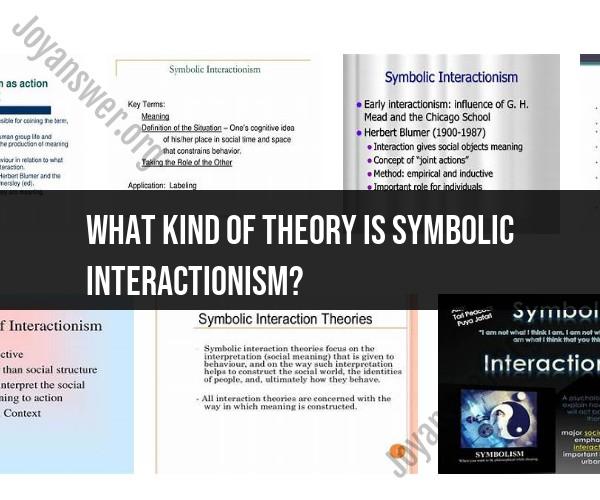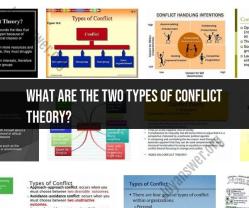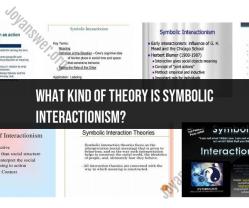What kind of theory is symbolic interactionism?
Symbolic interactionism is a sociological and psychological theory that focuses on the role of symbols and language in human interaction and the construction of meaning. It is a micro-level theory, which means it examines the small-scale interactions between individuals and how those interactions shape their perceptions and behaviors.
Key concepts and characteristics of symbolic interactionism include:
Symbols: Symbolic interactionists emphasize the use of symbols in communication. Symbols can be words, gestures, objects, or any other meaningful signs that people use to represent and convey meaning. For example, words like "love," "success," or "freedom" are symbols that carry different meanings for different individuals.
Meaning: Central to symbolic interactionism is the idea that individuals give meaning to symbols. This meaning is not inherent in the symbols themselves but is socially constructed through interaction. For example, a wedding ring is a symbol, but its meaning as a symbol of commitment and partnership is assigned by society and individuals.
Self and Identity: Symbolic interactionism explores how individuals develop a sense of self and identity through social interaction. People see themselves through the lens of how they believe others perceive them, leading to the concept of the "looking-glass self." The looking-glass self suggests that our self-concept is influenced by our perceptions of how others see us.
Roles and Role-taking: The theory emphasizes the importance of roles in society and how individuals learn to take on roles through interaction. Role-taking is the process of mentally assuming the perspective of another person to understand their point of view. This helps individuals navigate social situations and understand the expectations associated with different roles.
Socialization: Symbolic interactionism looks at the role of socialization in shaping individuals' beliefs, values, and behaviors. Socialization occurs through interactions with significant others, such as family members, peers, and mentors, who teach individuals the norms and values of their culture.
Interaction Rituals: Symbolic interactionists examine how everyday social interactions follow certain rituals or patterns. These rituals help maintain social order and reinforce shared meanings and expectations within a society.
Micro-Level Analysis: Symbolic interactionism is concerned with the details of face-to-face interactions between individuals or in small groups. It is often contrasted with macro-level theories that focus on broader social structures and institutions.
Applications of symbolic interactionism can be found in various fields, including sociology, psychology, communication studies, and anthropology. Researchers use this theory to study a wide range of topics, such as identity formation, language and communication, socialization processes, deviance, and the dynamics of small-group interactions.
Overall, symbolic interactionism provides valuable insights into how individuals create and interpret meaning in their social interactions, contributing to our understanding of human behavior and society.




